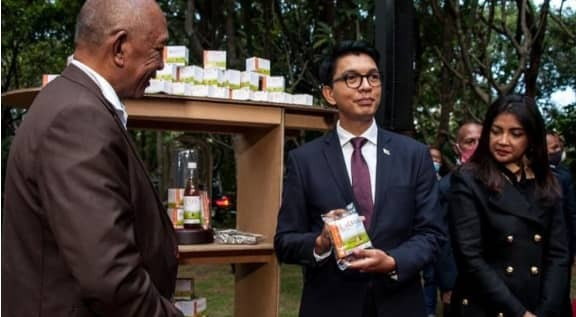
As a result of the organic concoction recommended by Madagascar President, Andry Rajoelina, to cure COVID-19, Madagascar has recorded about 92 recoveries out of confirmed cases of 128.
Madagascar overlooked orders from World Health Organisation (WHO) thus, producing their locally discovered cure for COVID-19 in bulk for the treatment of its citizens.
Madagascar currently has 36 active cases.
The nation has resorted to the use of a locally produced medicine they are using to treat the COVID-19 patients.
The use of the drug has proven effective as the nation is yet to record a single death.
President Rajoelina said that the concoction named COVID Organics (CVO) – a form of herbal tea – is curing COVID-19 patients.
Taking to Twitter, Rajoelina advised people to believe in the country’s ability. He said all profits accrued through the sale of concoction will be diverted to the Malagasy Institute of Applied Research (MIAR).
But the World Health Organization (WHO) in a statement has warned against any self-medication and said that it has not recommended any medicine as a cure for the COVID-19.
Notwithstanding, the WHO warning, a large number of Malagasy people are flocking to the free distribution points while others are still expressing skepticism. President has directed that drink will be distributed free of charge to the most vulnerable and sold at very low prices to others.
The Coronavirus pandemic across the African continent is rising astronomically although global figures are seeing a decline.
Madagascar, an island off the southern part of Africa is making great strides in its management of COVID-19 issues.
Rakoto Fanomezantsoa, a military doctor and director-general of the hospital of Soavinandriana, in Antananarivo, said that one of the components of the CVO does strengthen the immune system and eliminates viruses.
Known under the scientific name of Artemesia Annual, the plant of Chinese origin was first imported to Madagascar in the 1970s to treat malaria.
The first large-scale planting trials were carried out in the Alaotra Mangoro region, but industrial operations are now concentrated in the Itasy, Vakinankaratra, Amoron’i Mania, and Matsiatra Ambony regions.